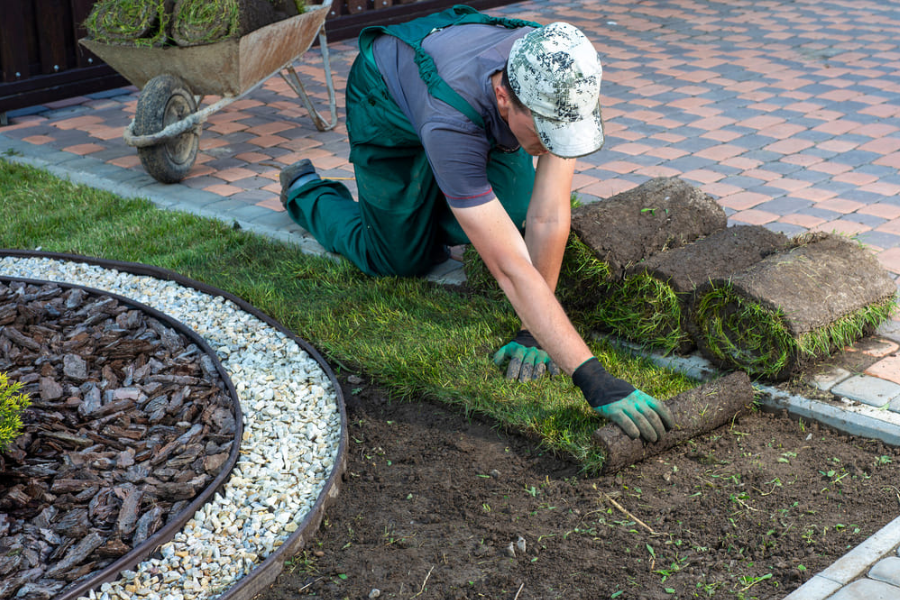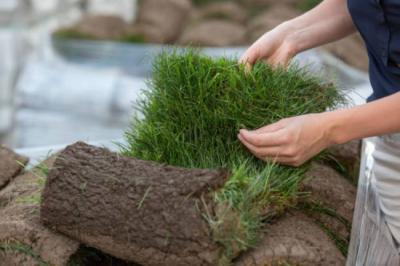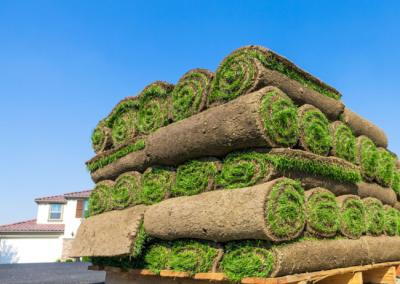As a warm season’s grass, Bermuda suits the climatic conditions of Georgia well. However, to ensure that you plant the Bermuda grass seed when the temperature is above 70 degrees, it allows nutrients to absorb and establish themselves before the winter season arrives. If you are wondering what is the best time to plant Bermuda Sod in Georgia, it is during the late spring or early summer months, typically from late April to early June. This period offers warm temperatures and adequate sunlight, which are ideal conditions for Bermuda grass to establish and thrive.
When is the Optimal Time of the Year to Plant Bermuda Sod in Georgia?
Installing Bermuda sod in Georgia requires waiting until temperatures consistently reach 70 degrees or higher, typically in late spring or early summer, after the last frost. If temperatures are warm enough right after the final frost, you can begin laying sod or seeding Bermuda grass a few weeks into spring. However, if temperatures remain below 70 to 80 degrees, it's advisable to wait two months before installing sod or planting Bermuda seed.
The optimal months for gardening in Georgia are May or June. If you are overseeding Bermuda grass, the best time is early May. You must ensure that he soil remains moist until the new turf reaches 1.5 inches in height. It is also advised to avoid planting Bermuda in the fall, as colder temperatures will prevent root growth.If planting in fall is unavoidable, use stolons or sprigs with at least six nodes, ensuring they are covered with soil and kept moist. At Atlanta Sod Farms, we can help you with the delivery of this sod. We can also help you determine the right Bermuda SOD pallet for your landscape.
3 Tips To Care For Bermuda Grass
1. Watering
You must water the top inch of the ground before you lay the Bermuda Sod and also irrigate once a day after that. It is advised to give the sod of 0.5 inches of moisture daily. However, if you are growing Bermuda grass from seed, you must water only ½ or ⅜ inch of water daily. Do not water all at once. You can water 3 - 4 times a day. After 5 to 14 days (germination time) of the seed plantation, you may double the amount of each watering, so the watering time reduces from 4 times a day to twice a day. Once the grass is established, it will require less watering, about one inch per week.
2. Mowing
You must not let the grass grow higher than two inches. In order to ensure that. You can cut the shoots once every two weeks or once every week. However, you must note that mowing must not be done during Bermuda’s dormancy, and no more than 30% of the grass should be removed.
3. Other Requirements
You must ensure full sun exposure to the Bermuda grass during the growth season and also aerate it yearly to ensure water, air, and nutrients can reach the roots.
Conclusion
In conclusion, the best time to plant Bermuda Sod in Georgia is during late spring or early summer, typically from late April to early June. These months offer warm temperatures and ample sunlight, ideal conditions for Bermuda grass to establish and thrive. It's crucial to wait until temperatures consistently reach 70 degrees or higher after the last frost before laying sod or seeding Bermuda grass. Avoid planting Bermuda in the fall, as colder temperatures inhibit root growth. If fall planting is unavoidable, use stolons or sprigs with at least six nodes, keeping them covered with soil and moist. Proper care, including regular watering, mowing, and providing total sun exposure, will help maintain the health and beauty of your Bermuda grass.At Atlanta Sod Farms, we can assist you with delivery of this sod, ensuring a lush and vibrant lawn all year round.
Frequently Asked Questions
How do you install Bermuda sod in Georgia?
Installing Bermuda sod in Georgia involves preparing the soil, laying the sod rolls tightly together, watering thoroughly, and then maintaining regular watering until the roots establish.
What is the best sod for Georgia?
The best sod for Georgia largely depends on factors like soil type, sunlight, and intended use. However, Bermuda and Zoysia are popular choices due to their heat tolerance and durability in Georgia's climate.
What month does grass start growing in Georgia?
Grass typically starts growing in Georgia in early spring, around March or April, when temperatures begin to rise and daylight hours increase, signaling the onset of the growing season.





